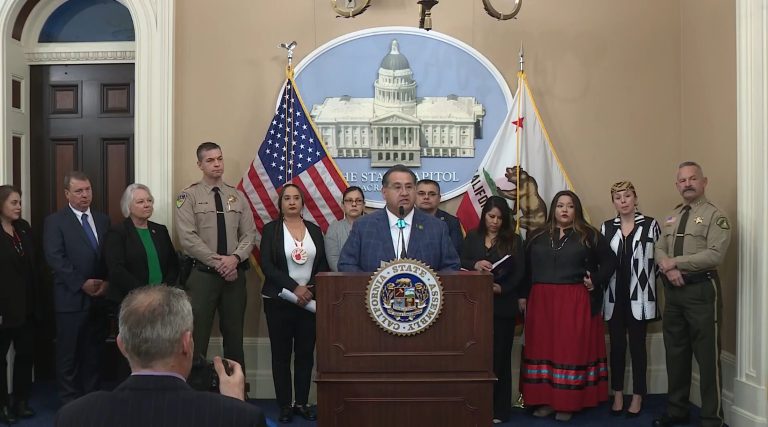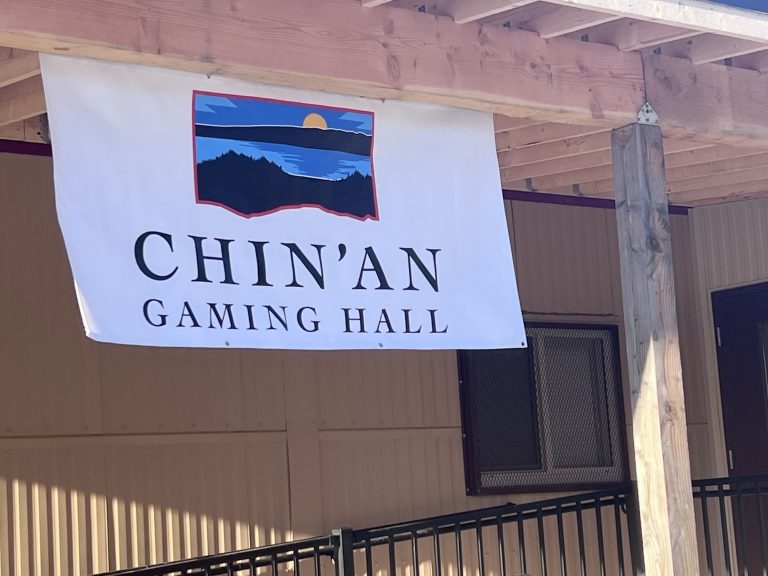Podcast: Play in new window | Download | Embed
Oklahoma Governor Kevin Stitt vetoed a bill aimed at increasing cooperation between state agencies and tribal judicial systems, particularly to get drunk drivers off the road.
The bill won approval from 96% of the legislature. In vetoing the bill, Stitt claimed it is a “wolf in sheep’s clothing” that hands jurisdictional authority over to the tribes.
Among the tribal leaders criticizing Stitt’s decision is Choctaw Nation of Oklahoma Chief Gary Batten. He called the veto decision “petty” and does nothing but hurt public safety.
 The former chairman of the Mashpee Wampanoag Tribe faces up to 20 years in prison for each of three extortion counts after a federal jury convicted him of those and another charges. Fifty-five year-old Cedric Cromwell also faces a maximum fine of 250-thousand dollars after the convictions, which also include bribery and conspiracy charges.
The former chairman of the Mashpee Wampanoag Tribe faces up to 20 years in prison for each of three extortion counts after a federal jury convicted him of those and another charges. Fifty-five year-old Cedric Cromwell also faces a maximum fine of 250-thousand dollars after the convictions, which also include bribery and conspiracy charges.
The jury also convicted the owner of a Rhode Island architecture-and-design firm. The jury agreed with prosecutors that Cromwell accepted three bribes, including cash, to protect the design firm’s contract to build a resort and casino.
Cromwell faces four additional related charges. He’s scheduled to be sentenced in September.
 Two years after it was first introduced, a bill to establish an American Truth and Reconciliation Commission on boarding schools gets its first hearing in Congress this week.
Two years after it was first introduced, a bill to establish an American Truth and Reconciliation Commission on boarding schools gets its first hearing in Congress this week.
The commission is designed to address the ongoing trauma Native Americans suffer from a century of abuse, sexual assault, and forced family separation at government-sanctioned boarding schools.
The bill was first introduced by then-Congresswoman Deb Haaland. The effort is now championed by Rep. Sharice Davids (D-KS), a member of the Ho-Chunk Nation. In addition to the hearing, the House Committee on Natural Resources is taking written public testimony until May 26.
The National Native American Boarding School Healing Coalition urges boarding school survivors and their families to submit their experiences to the committee.
You can watch it live on YouTube this Thursday, May 12 starting at 1pm ET.

A group of law professors is critical of a federal appeals court ruling in March that cleared the way for a land swap to create a road through a national wildlife refuge in Alaska. KNBA’s Tripp J. Crouse has more on the legal battle over the swap.
In March, the U.S. Ninth Circuit Court of Appeals ruled 2-to-1 in favor of allowing a road between King Cove and Cold Bay. If approved, the road would cut across the Izembek National Wildlife Refuge on the Alaska Peninsula.
On May 4, 2022, a group of 25 law professors joined environmental advocates and filed an amicus brief in a lawsuit opposing the road.
During the Trump administration, Interior secretaries reversed a 2013 agency decision from the Obama administration to deny the road.
The brief outlines policy and regulatory concerns about that reversal. The law professors say the Trump administration’s secretaries did little to prove a need for the road to reverse previous agency policies. They also say the swap violates environmental laws and the Alaska National Lands Conservation Act (ANILCA).
The professors, who represent institutions from across the Lower 48, seek an en banc – or full-court ruling – on the decision to allow the land exchange.
Environmental advocates say that ruling in favor of the road would create a cascade of regulation issues on so-called national public lands.
 Native residents boosted Arizona’s overall coronavirus vaccination rate, according to an analysis by the Salt Lake City Tribune of a recent Centers for Disease Control and Prevention report.
Native residents boosted Arizona’s overall coronavirus vaccination rate, according to an analysis by the Salt Lake City Tribune of a recent Centers for Disease Control and Prevention report.
The report finds Arizona is the only state where vaccination rates in rural areas outpaced those in urban places. Those areas have a high percentage of Native residents.
The CDC finds Navajo and Apache counties had a vaccination rate that exceeded 86 percent through January of this year. Urban areas in the state stayed below 70%.
Health experts told the Tribune they credit the high rate to effective messaging by tribal health officials urging vaccinations to keep elders and others safe – and vaccine information printed in Native languages.
The Navajo Nation’s push for vaccinations took on increased urgency after COVID-19 infection rates climbed to the highest level in the country at the start of the pandemic.
Get National Native News delivered to your inbox daily. Sign up for our newsletter today.




